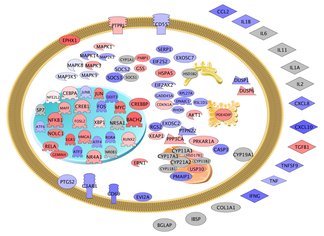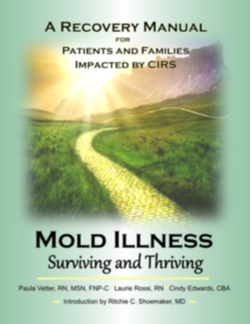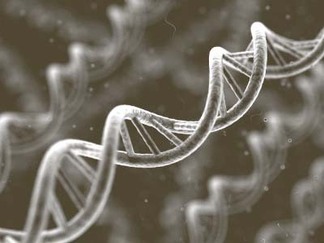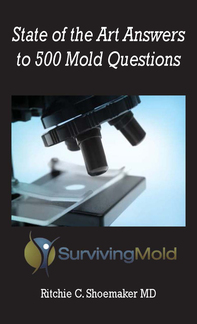GENIE (Genomic Expression: Inflammation Explained) Now Available!

Transcriptomics: The Final Frontier for Chronic Fatiguing Illnesses Metabolic Testing is now available
Welcome “GENIE” (Genomic expression: Inflammation Explained)!
Yes, the test is now here. After ten years in concept and three years in development and validation, the application of transcriptomics to confirm hypometabolism (see below) is available. Based on the work of James Ryan, PhD, for the first time we can use differential gene expression to tell us about abnormalities in gene functioning in illnesses characterized by chronic
fatigue. Understanding the gene expression lets us use targeted therapies based on our published, peer-reviewed work.
As you may guess by the name, hypometabolism indicates abnormally low metabolic activity. Finally, we have the definitive test that adds weight to both diagnosis and the sequential monitoring that shows the effects of therapy. Incredible. We don’t have to guess about illnesses without objective biomarkers, like fibromyalgia and Chronic Fatigue Syndrome (CFS). We will define CFS by transcriptomics and not by non-specific symptoms.
And we can show what chronic inflammatory response syndrome (CIRS) truly is in patients harmed by water-damaged buildings (WDB) and Post-Lyme Syndrome.
We can show when therapy is completed: the search for the “cure” word is upon us. We can confirm relapse should that tragically occur. We can show progress in the twelve steps of therapy.
Hypometabolism includes pathologic suppression of both ribosomal and nuclear-encoded mitochondrial genes. Actual mitochondrial genes still resident in mitochondria number 37; the other 1000 or so are in our own nuclear DNA. Hypometabolism shows us the dominant role of differential gene activation in pathogenesis and perpetuation of chronic fatiguing illnesses.
Treatment of hypometabolism with our published, peer-reviewed protocols shows sequential resolution of gene suppression/activation. For the first time we can now track the pathologic basis of chronic fatigue and critical inflammatory elements throughout treatment.
Let the newest science train your thinking; conduct your diagnosis and treatment; and punch your ticket to salutary outcomes. This hypometabolism panel contains 175 reporter genes, covering a wide range of areas from mitochondrial ATP synthase to Toll-like receptors to caspases (apoptosis) and more.
This test is called “research use only.” What that term means is that a physician must order the test for the patient. We are in the process of expanding access directly to patients but for now a physician must order the test.
You will see that there are requirements for paperwork to be done including diagnosis, stage of illness and pertinent laboratory findings. The paperwork is sent to ProgeneDx at 500 Market Street, Suite 103, Pocomoke City, Maryland 21851, but the frozen blood samples are sent to our laboratory in Florida. Please review the instructions provided with the blood drawing kit.
THIS TEST IS ONLY AVAILABLE IN THE UNITED STATES. INTERNATIONAL ORDERS CANNOT BE ACCEPTED.
Please note that the order does not include the cost of return shipping on dry ice the two special tubes of blood needed to run the assay. The purchaser is required to pay for shipping the samples to the lab
Featured Resources for Mold Treatment
Common Questions & Answers about Cholestyramine (and why it’s the most effective option out there).
Cholestyramine (CSM) is an FDA-approved medication used in an initial stage of The Shoemaker Protocol because it has a unique affinity for binding with biotoxins and effectively eliminating them from the body.
CRBAI Sponsored Transcriptomics coming soon!
We are incredibly excited to share a new service for our members available from participating physicians!
Surviving Mold Down Under
Through Dr Shoemaker’s work we can see that the evidence for an association between environmental exposure to biotoxins and inflammatory sequelae is well documented and predictable in individuals with certain genetic patterns whose physiology has been ...
 State of the Art Answers to 500 Mold Questions EBOOK
State of the Art Answers to 500 Mold Questions EBOOK
Subscribe
Sickened by moldy buildings? Need facts and answers fast? Here is your guide: State of the Art Answers for 500 Mold Questions. Thorough and reliable, “500 Answers” is as current as one can find on a subject where bad information abounds.
NeuroQuant Paper Announcement
The Center for Research on Biotoxin Associated Illnesses of Pocomoke, Maryland is pleased to announce that its newest academic paper entitled “Structural brain abnormalities in patients with inflammatory illness acquired following exposure to water-damage...

.jpg)


